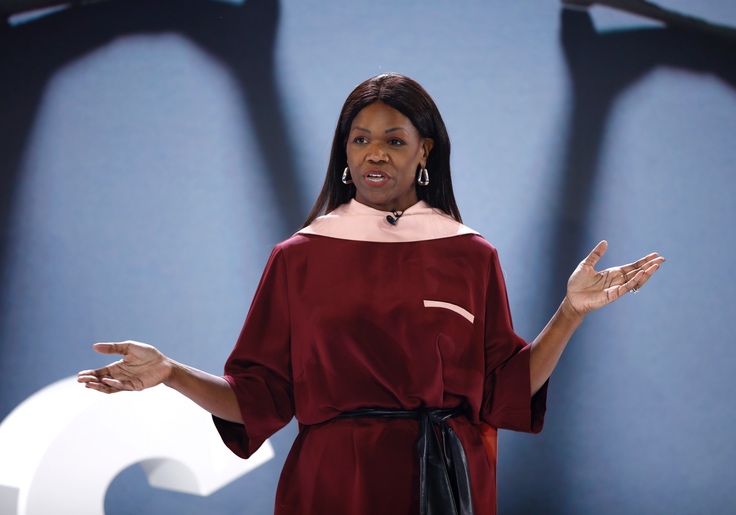Vivian Hunt, an ex-McKinsey consultant who has argued meritocracy ‘isn’t good enough,’ will serve as president of the Harvard Board of Overseers

Harvard University on Monday tapped an ex-McKinsey consultant who has criticized meritocracy and published controversial research on the benefits of diversity in business to help select the university’s next president.
Vivian Hunt, who in 2015 co-authored McKinsey’s influential paper, “Why diversity matters,” has been appointed to lead the Harvard Board of Overseers, the head of which has historically sat on Harvard’s presidential search committees along with all 12 members of the Harvard Corporation, the university’s top governing body, according to the Harvard Crimson. The overseers can also veto presidential appointments with a majority vote.
The system means that Hunt—who has argued that meritocracy “isn’t good enough” and urged companies to adopt explicit diversity targets—will likely play a major role in picking former Harvard president Claudine Gay’s successor. Her appointment comes amid plummeting donations and a major drop in applications to the Ivy League school, which has been at the center of a debate about diversity, equity, and inclusion programs in higher education.
Critics of those programs say Hunt’s selection is a red flag as Harvard gears up to find a permanent replacement for Gay—a major champion of DEI—who resigned in January amid allegations of plagiarism.
“Vivian Hunt leading the search for the next president of Harvard perfectly encapsulates the rot in higher education and corporate America,” said Will Hild, the executive director of Consumers’ Research, a nonprofit that has led a campaign against ESG initiatives, including diversity programs, in the business world. “If Harvard was serious about rebuilding their floundering reputation, Hunt would be the last person chosen to lead this search.”
Hunt has been a driving force behind the proliferation of DEI initiatives. Her 2015 paper has been cited by countless companies and institutions, including the Pentagon, to justify their diversity programs, even as more recent research has challenged her findings.
A study in Econ Journal Watch this March found that diversity has no effect on company returns and that Hunt’s results don’t replicate. The findings were a major rebuke of Hunt, now the CEO of Optum Health, who has spent nearly a decade making the business case for diversity—and against meritocracy.
She has argued that a “meritocratic” policy of “treating people evenly isn’t good enough” because it “allows the bias that is in our systems … to perpetuate.”
“You have to proactively stand for an antiracism environment,” she said in a 2020 interview, “to positively include people who have been historically excluded.”
Harvard did not respond to a request for comment.
Hunt’s appointment is likely to raise questions about whether Harvard has learned any lessons from Gay, the university’s first black president, who was hired through one of the shortest presidential searches in Harvard history—one that did not include a review of her scholarly record. Gay stepped down after accusations of plagiarism compounded the fallout from her disastrous congressional testimony in December, when she equivocated about whether calls for the genocide of Jews violate Harvard’s code of conduct.
Her downfall fueled the perception that she had been hired because, as Sen. J.D. Vance (R., Ohio) put it, “she checked a box.” The decision to elevate Hunt could portend more box-checking as the school seeks to manage a large and growing group of alumni unhappy with their alma mater’s priorities, including those around DEI.
In a write-in campaign to join the Board of Overseers, which advises the Harvard Corporation and has a veto over its members, former Facebook executive Sam Lessin said that “academic excellence” should be the university’s “only goal.” The message resonated: Though Lessin didn’t make it onto the ballot for board elections, he did secure 2,901 nominations from alumni—the most in the history of Overseers write-in campaigns.
“The Overseers are a critical check and balance on making sure that we have the right leadership across the board,” Lessin told the Harvard Crimson in an interview. “They haven’t taken that role seriously enough in modern times.”
Original News Source – Washington Free Beacon
Running For Office? Conservative Campaign Management – Election Day Strategies!
